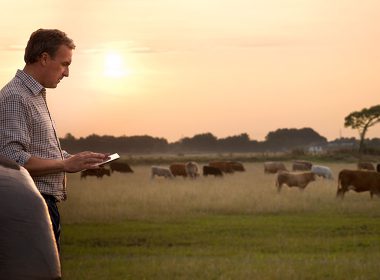Sponsored content
As the relentless march of climate change continues, its effects on the environment have become increasingly evident, as recently seen in Europe as temperatures soared over summer. While the environmental and societal implications of climate change are receiving widespread attention, its impact on property remains overlooked. This article delves into the significant repercussions climate change poses now and long term, for real estate agents and homeowners, and how property lawyers need to consider a duty of care when advising on property matters.
One of the most immediate and noticeable effects of climate change on property is the surge in extreme weather events. Floods, wildfires, and severe storms are becoming more frequent and intense, causing extensive damage to properties, leading to soaring repair costs and insurance claims.
Climate change impacts can gradually erode the value of properties in certain locations. As extreme weather events become more commonplace, properties in areas prone to flooding or wildfires could devalue due to increased risk and decreased demand. Uncertainty about a region’s future can also deter investors and potential buyers, leading to a sluggish real estate market in climate-vulnerable areas. Not only do individual properties become affected, but the liveability in these locations is also compromised with infrastructure, such as roads, bridges, and public utilities coming under immense pressure. This can affect residents’ quality of life, deter new investments, and can also create an economic challenge for regions heavily dependent on insurance for protection against natural disasters.
Australia is a land of diverse landscapes and natural beauty, but it is also highly susceptible to the adverse effects of more frequent and intense extreme weather events. Among these, bushfires, floods and coastal erosion have emerged as some of the most pressing challenges for property owners across the nation.
Property lawyers in Australia are already starting to address transactions affected by climate change. However, it’s essential to note that the legal landscape is continually evolving, and the specific measures taken by property lawyers are likely to develop further over time. In a recent comprehensive legal opinion piece released by Norton Rose Fulbright, the pre-eminent environmental law practice in Australia, Partner, Elizabeth Wild explores climate change risks for New South Wales property transactions, underlining important considerations for conveyancers and property lawyers on their duty of care and responsibility to warn clients.
This piece highlights that a sizeable portion of the legal profession, and other professions too, may be failing to adequately consider how climate risks should inform their day-to-day practices. This omission is increasing exposure to liability risks. That is the risk that clients and others will seek compensation from their professional advisors for the losses which they have suffered from the physical and transition risks of climate change. In this regard, the scope of a professional’s duty of care to their client should not be frozen in time. Rather, it should be informed by what is foreseeable at any given point in time, which will evolve as the knowledge and understanding of climate change and its impact grows and as tools which assess climate risk become available.
Below are some ways property lawyers in Australia can start to better advise on property transactions affected by climate change:
- Due Diligence: Property lawyers are placing greater emphasis on conducting thorough due diligence on properties to assess their vulnerability to climate-related risks, both immediate and long term. This includes investigating the potential for flooding, sea-level rise, bushfire-prone areas, and other climate-related hazards that could impact the property’s value and insurability.
- Disclosures and Risk Warnings: Lawyers are advising vendors and real estate agents to disclose information about climate risks to potential buyers. This ensures that buyers are aware of any potential climate-related challenges they may face with the property.
- Contractual Provisions: Lawyers are including specific contractual provisions that address climate-related issues. These provisions may outline responsibilities and liabilities concerning climate risks and damages that may arise during the property transaction.
- Insurance Considerations: Property lawyers are discussing insurance coverage with their clients, ensuring that properties have adequate coverage against climate-related events.
- Local Government Regulations: Lawyers are keeping abreast of local government regulations and zoning changes related to climate change. This information is crucial when advising clients on property purchases, developments, and land use.
- Title Searches: Lawyers are conducting in-depth title searches to understand potential encumbrances or restrictions that may arise due to climate change-related regulations.
- Climate Change Clauses: Some property lawyers have started incorporating clauses into contracts that address climate change and its potential impacts on the property. These clauses may address issues like sea-level rise, changing weather patterns, or future environmental regulations.
- Alternative Energy and Green Infrastructure: Lawyers are advising clients on the legal implications of investing in renewable energy sources and implementing green infrastructure on their properties. This may include solar panels, rainwater harvesting systems, and other climate-friendly solutions.
- Risk Mitigation Strategies: Property lawyers are working with their clients to develop risk mitigation strategies that account for climate change-related risks. This may include recommending adaptation measures to minimize potential losses.
It’s important to understand that climate change is a complex and multifaceted issue, and the approach of property lawyers can vary depending on the specific circumstances of each case. As climate change continues to impact the world, property lawyers with the support from Law Societies in Australia and elsewhere are likely to adapt their practices further to address the emerging challenges.
To access the full Norton Rose Fulbright opinion piece and obtain a sample Groundsure ClimateIndex™ Report, the first report in NSW on current and future climate risks specifically for conveyancers and property lawyers to undertake property due diligence, click here.





